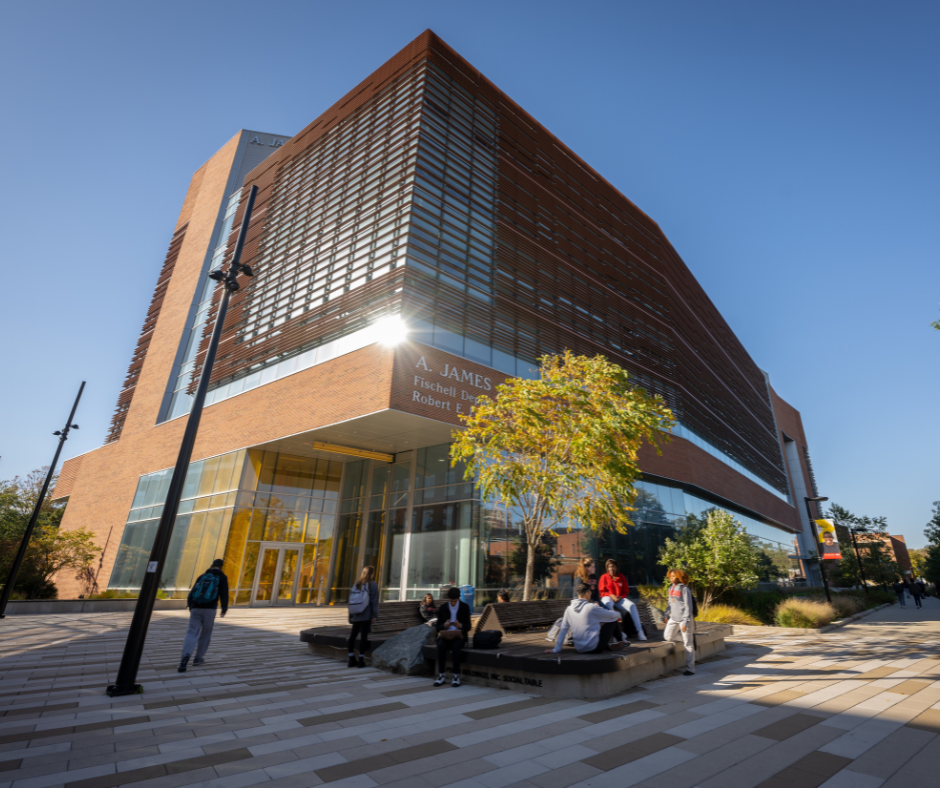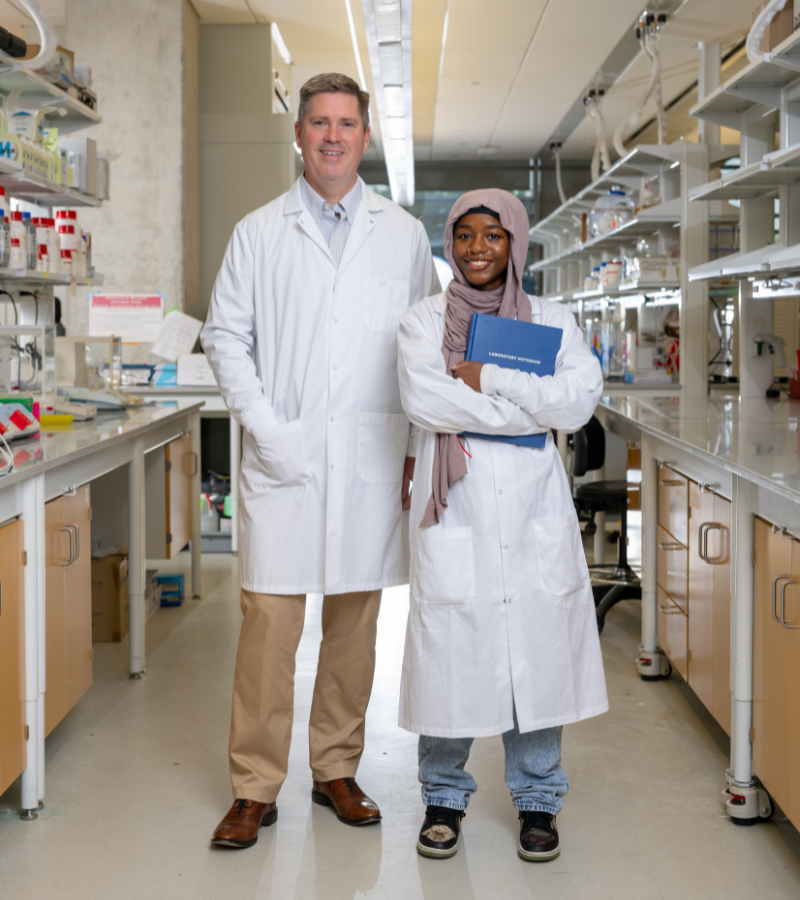UMD Bioengineering Graduate Program Holds #12th Public National Ranking
The Fischell Department of Bioengineering (BIOE) at the University of Maryland (UMD) continues to rank among the nation’s leading graduate programs in bioengineering and biomedical engineering, according to the latest U.S. News & World Report (USNWR) rankings. On April 7, USNWR released its 2025-2026 Best Graduate Schools rankings, with BIOE securing the #12 public and #28 overall spot nationwide. The department continues to uphold its position as a program dedicated to advancing research and education in bioengineering. “The continued recognition of our graduate program reflects the strength of our faculty, the passion of our students, and the impact of our research,” said Distinguished University Professor and Department Chair John P. Fisher. “We remain committed to preparing future leaders in bioengineering who are ready to tackle today’s most urgent health challenges.”
BIOE recently expanded to Baltimore with the launch of the Edward & Jennifer St. John Center for Translational Engineering and Medicine (EJSJ CTEM). Located on the fourth floor of the new 4MLK facility in the University of Maryland BioPark, the center represents a major collaboration between BIOE at the University of Maryland, College Park (UMCP) and the University of Maryland School of Medicine (UMSOM) at the University of Maryland, Baltimore (UMB). Established through a $10 million philanthropic gift from Edward and Jennifer St. John and the Edward St. John Foundation, EJSJ CTEM creates a shared space where engineers and clinicians collaborate to develop medical devices, diagnostics, and treatments that directly respond to patient needs. EJSJ CTEM is co-directed by BIOE Associate Professor Giuliano Scarcelli and UMSOM Professor Osamah J. Saeedi. Their collaboration on advanced ophthalmologic imaging for ocular diseases like glaucoma reflects the center’s mission of bringing real-world medical needs into engineering research. BIOE Associate Professor Joe Huang will also join the team at 4MLK, expanding his NIH-funded research on light-based nanotechnologies to enhance drug delivery for glioblastoma and ovarian cancer. To support the launch and expansion of CTEM, the University of Maryland Strategic Partnership: MPowering the State (MPower) awarded a five-year, $12.75 million grant to UMCP and UMB. The funding supports research and education initiatives, new lab and office space at 4MLK, and the recruitment of new faculty dedicated to cross-campus collaboration.
In addition to its physical expansion, BIOE continues to offer a comprehensive and interdisciplinary graduate program designed to bridge engineering, biology, and medicine. Graduate students pursue research in areas such as biomaterials and tissue engineering, drug delivery, biomechanics, biomedical imaging, biosensors, and medical devices. The program emphasizes bioengineering at the molecular and cellular level, equipping students with the tools to contribute to advances in human health and medical technologies. Graduate students benefit from a range of research opportunities, including Graduate Research Assistantships and merit-based fellowships. Many students participate in research projects directly related to their thesis or dissertation work under the guidance of faculty who lead federally funded and industry-partnered projects. BIOE’s research expenditures have more than doubled in recent years, reaching over $22 million in 2024, placing the department among the top Big Ten programs for research funding. BIOE’s faculty are leaders in diverse and emerging areas, including biocomputation, biomolecular engineering, medical imaging, drug delivery, and regenerative medicine. Researchers use computational models to explore biological systems, create bio-inspired materials to treat disease, and develop new optical technologies for diagnostics. The department also maintains strong ties with research centers and institutes, such as the Robert E. Fischell Institute for Biomedical Devices, to translate innovative discoveries into real-world health solutions. BIOE offers a variety of graduate degrees, including the Ph.D., M.S., and M.Eng., as well as dual degree options with the School of Medicine. The department’s collaborative culture and access to resources across the state of Maryland make it a strong choice for students looking to make an impact in bioengineering.
Related Articles: April 8, 2025 Prev Next |




